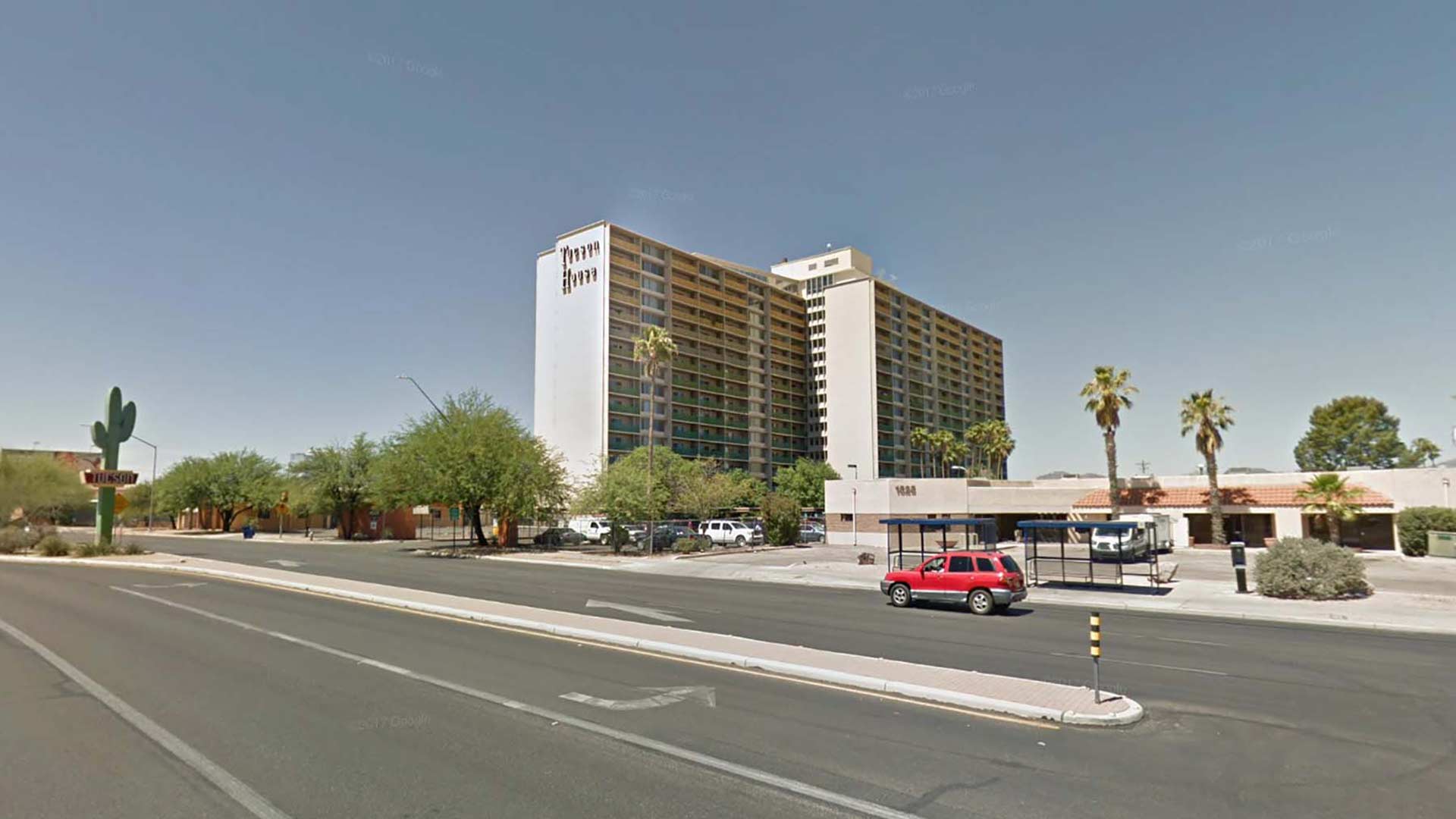 Tucson House was built in 1963 as an apartment complex, but was purchased by the City of Tucson in 1979 and converted into public housing.
Tucson House was built in 1963 as an apartment complex, but was purchased by the City of Tucson in 1979 and converted into public housing.
Tucson House, the city’s largest public housing complex, will transition from the traditional public housing program to a voucher-based system under the Housing Choice Voucher program.
“This change can help (Public Housing Authorities) preserve affordable housing units, address rehabilitation and physical needs, and place properties on a more stable financial foundation,” the Housing and Community Development's 5-year Strategic Plan says.
The change comes after the board of commissioners, which includes members of Tucson’s city council, approved the transfer to make way for the financing and redevelopment of the property. The existing ownership entity will change from Tucson House Apartments LLP to the city, which will maintain majority ownership of the land where Tucson House is built. Gorman & Company, a Wisconsin-based construction firm, will join as a minority owner and head the property’s management once renovations are completed.
The project was made possible after Tucson was named as one of eight cities selected for a $50 million Choice Neighborhoods Implementation grant in July 2023. The eight-year grant will be used to fully rehabilitate Tucson House into a 55 and older community and develop mixed-income housing for three additional sites.
The re-development of Tucson House will result in 48 fewer units, but to replace those lost units, the CNI grant calls for three new affordable housing units including the Bum Steer Family Apartments (37 units), Amazon Apartments (26 units), and Stone/Speedway Apartments (25 units).
Housing and Community Development Deputy Director Johanna Hernandez says the move is important for several reasons including private investment, which is funding 53% of the renovation.
“It also guarantees rents,” Hernandez said. “It creates cash flow to maintain and provide stable funding for the development. It also provides more resident flexibility so that they can choose where they want to go since it's voucher-based.”
While Hernandez told AZPM News that the shift is “not due to instability in the public housing program,” city documents highlight financial sustainability concerns.
According to memos to Tucson’s Mayor and Council, the city’s Public Housing program is “not financially sustainable long-term.”
“Costs to operate and maintain the units are not keeping pace with the federal funding provided by the U.S. Department of Housing and Urban Development (HUD),” a September 19, 2023 memo reads. “Moreover, the majority of the units are in need of rehabilitation. Fortunately, HUD recognizes this trend across the nation and has made available several tools to help PHAs ‘reposition’ public housing to a voucher-based model, which is generally considered to be a more stable financial platform.”
As a way to solve the problem, the Public Housing Financial Stability Plan identified asset repositioning as a means to generate cash flow, guarantee rents, and attract private investment—“none of which are possible in the Public Housing program.”
“Repositioning will move the current financial situation from an average deficit of $4 million a year to a position of financial stability,” the 2023 memo says. “The tenant’s rent amount will not increase, but the amount of subsidy from HUD to pay for the voucher rent will increase based on Fair Market Rent in Tucson.”
Financial reports say the Public Housing division, which ended last fiscal year with a $2.4 million deficit, expects to receive unbudgeted revenue and break even this year.
City officials say there is a long-term plan in place to ensure financial stability over time. Officials also said the Tucson House renovation was planned before the public housing division’s financial problems.


By submitting your comments, you hereby give AZPM the right to post your comments and potentially use them in any other form of media operated by this institution.